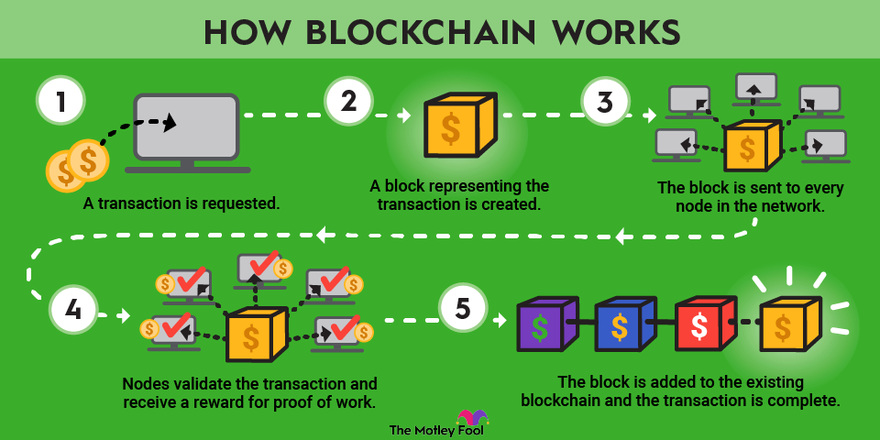The Ultimate Guide to BaoXing Bags
Explore the latest trends and styles in BaoXing bags.
Blockchain: The Digital Ledger That's Eating the World
Discover how blockchain is revolutionizing industries and changing our lives—don't miss the digital revolution that's reshaping the world!
How Does Blockchain Technology Transform Industries Beyond Finance?
Blockchain technology is not just reshaping the financial sector; its transformative impact spans various industries, leading to improved transparency, security, and efficiency. In supply chain management, for instance, blockchain provides a decentralized ledger that allows all parties to access real-time data, thus enhancing traceability and accountability. Companies can track products from origin to consumer, ensuring authenticity and reducing fraud. The use of smart contracts further streamlines processes, allowing automatic execution of agreements when predefined conditions are met, minimizing human error and intervention.
In healthcare, the potential of blockchain technology is being realized through secure patient data management. By utilizing a decentralized network, sensitive patient information can be shared between authorized providers while maintaining privacy and security. This not only enhances patient care but also facilitates faster diagnoses and treatment processes. Moreover, the real estate industry is exploring blockchain for property transactions, where it can simplify the buying and selling process by maintaining transparent records and reducing the need for intermediaries, thereby cutting costs and expediting transactions.

Understanding Blockchain: A Beginner's Guide to the Digital Ledger Revolution
Blockchain technology is rapidly transforming the way we think about data storage and security. At its core, blockchain is a decentralized digital ledger that records transactions across multiple computers in a way that the registered data cannot be altered retroactively. This inherent security feature makes blockchain a revolutionary tool for industries such as finance, supply chain management, and healthcare. By eliminating the need for intermediaries, blockchain not only increases efficiency but also enhances transparency and trust among parties involved in any transaction.
As a beginner exploring blockchain, it's crucial to understand some fundamental concepts. First, a block is simply a collection of data that holds a set of transactions. When a block is filled, it is linked to the previous block through a cryptographic hash, forming a continuous chain. This structure ensures that once a block is added to the chain, it cannot be changed without altering all subsequent blocks, making blockchain highly secure. Understanding these basics is essential for grasping how blockchain technology can be applied to create innovative solutions and disrupt traditional systems.
What Are the Key Benefits of Implementing Blockchain Solutions in Business?
Blockchain technology offers a multitude of benefits for businesses seeking to enhance their operations and improve efficiency. One of the key advantages is transparency. With blockchain, all transactions are recorded on an immutable ledger that is visible to all authorized parties. This transparency helps reduce fraud and ensures accountability among stakeholders. Furthermore, it fosters trust among customers, partners, and suppliers, as they can independently verify the integrity of the transactions.
Another significant benefit of implementing blockchain solutions is enhanced security. Traditional centralized databases are vulnerable to hacking and data breaches; however, blockchain operates on a decentralized network that makes it nearly impossible for a single entity to alter transaction data. This advanced security feature is particularly beneficial for industries handling sensitive information, such as finance and healthcare. Additionally, by streamlining processes and reducing intermediaries, businesses can enjoy cost savings and improved operational efficiency.